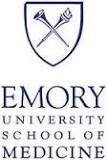Neurobiological Principles Applied to the Rehabilitation of Stroke Patients
| Status: | Completed |
|---|---|
| Conditions: | Neurology |
| Therapuetic Areas: | Neurology |
| Healthy: | No |
| Age Range: | 18 - 80 |
| Updated: | 10/18/2017 |
| Start Date: | April 2007 |
| End Date: | September 2016 |
The purpose of this study is to use (Transcranial Magnetic Stimulation) TMS or drugs to
improve learning of movement skills and the adaptation processes in patients after stroke.
Once investigators have determined the improving effect of TMS and the drugs on learning of
movement skills, the study team may be able to provide information that improves
rehabilitative treatment and helps to improve recovery after stroke.
improve learning of movement skills and the adaptation processes in patients after stroke.
Once investigators have determined the improving effect of TMS and the drugs on learning of
movement skills, the study team may be able to provide information that improves
rehabilitative treatment and helps to improve recovery after stroke.
Previous studies have shown, that when patients learn a new motor movement, it may cause a
change in the way the nerves act in the area of the brain that controls movement. This change
is called use-dependent plasticity. The ability of that part of the brain, called the motor
cortex (M1), to reorganize plays a major role in the recovery of motor deficits post-stroke;
hence the importance for further development of rehabilitative strategies that utilize this
potential for recovery. In this proposed study, investigators will further examine influences
of use-dependent plasticity in the non-injured M1 of healthy subjects and injured M1 of
stroke subjects using a combination of non-invasive cortical stimulation, medication, and
exercise techniques. In Aim 1, investigators will test the effect of drugs that interact
specifically with different neurotransmitter systems on use-dependent plasticity in intact M1
of healthy humans. In Aim 2, investigators will identify the parameters for non-invasive
transcranial magnetic stimulation (TMS) of M1 that are most effective to enhance
use-dependent plasticity in intact healthy human M1. In Aim 3, investigators will test the
drugs and rTMS protocols that were demonstrated to be most effective to enhance use-
dependent plasticity in the Specific Aim 1 and 2 and apply them to participants who have
experienced a stroke. Results from this study will help to inform future research about the
efficacy of plasticity enhancing methods in injured M1 of stroke patients.
change in the way the nerves act in the area of the brain that controls movement. This change
is called use-dependent plasticity. The ability of that part of the brain, called the motor
cortex (M1), to reorganize plays a major role in the recovery of motor deficits post-stroke;
hence the importance for further development of rehabilitative strategies that utilize this
potential for recovery. In this proposed study, investigators will further examine influences
of use-dependent plasticity in the non-injured M1 of healthy subjects and injured M1 of
stroke subjects using a combination of non-invasive cortical stimulation, medication, and
exercise techniques. In Aim 1, investigators will test the effect of drugs that interact
specifically with different neurotransmitter systems on use-dependent plasticity in intact M1
of healthy humans. In Aim 2, investigators will identify the parameters for non-invasive
transcranial magnetic stimulation (TMS) of M1 that are most effective to enhance
use-dependent plasticity in intact healthy human M1. In Aim 3, investigators will test the
drugs and rTMS protocols that were demonstrated to be most effective to enhance use-
dependent plasticity in the Specific Aim 1 and 2 and apply them to participants who have
experienced a stroke. Results from this study will help to inform future research about the
efficacy of plasticity enhancing methods in injured M1 of stroke patients.
Aims 1 and 2
Inclusion Criteria:
- Normal neurological examination
- Ability to meet criteria of inclusion experiment
- Ability to give informed consent.
Exclusion Criteria:
- History or neurological or psychiatric disease
- Abnormal MRI of brain
- Abnormal neuropsychological testing
- Intake of CNS active drugs
- History of seizure disorder
- History of migraine headaches
- History of anaphylaxis or allergic reactions
- Contraindication to TMS
Aim 3:
Inclusion Criteria:
- Cerebral ischemic infarction more than 6 months prior to entering the study
- Single lesion as defined by MRI of the brain affecting the primary motor output system
of the hand at a cortical (M1) level or subcortical level, or unilateral, and
supratentorial in absence of history of a previous symptomatic stroke within 3 months
of the current stroke
- Dense paresis of the hand for more than three days after cerebral infarction (MRC of <
4- of wrist- and finger extension/flexion movements)
- Good functional recovery of hand function as defined by MRC of 4 or 4+ of wrist- and
finger extension/flexion movements
- Ability to perform wrist extension movements
- Ability to meet criteria of inclusion experiment
- Ability to give informed consent
- Ability of TMS to elicit a measurable MEP of > 100 μV and an increase in MEP amplitude
with increasing stimulus intensity (up to 100% of MSO) of at least 20% over MEP
amplitude at MT
Exclusion Criteria:
- History or neurological or psychiatric disease, including bipolar disorder
- Intake of CNS active drugs
- History of seizure disorder
- History of migraine headaches
- History of anaphylaxis or allergic reactions
- Contraindication to TMS
We found this trial at
1
site
1648 Pierce Dr NE
Atlanta, Georgia 30322
Atlanta, Georgia 30322
(404) 727-5640

Principal Investigator: Cathrin M Buetefisch, MD
Phone: 678-369-3152
Emory University School of Medicine Emory University School of Medicine has 2,359 full- and part-time...
Click here to add this to my saved trials